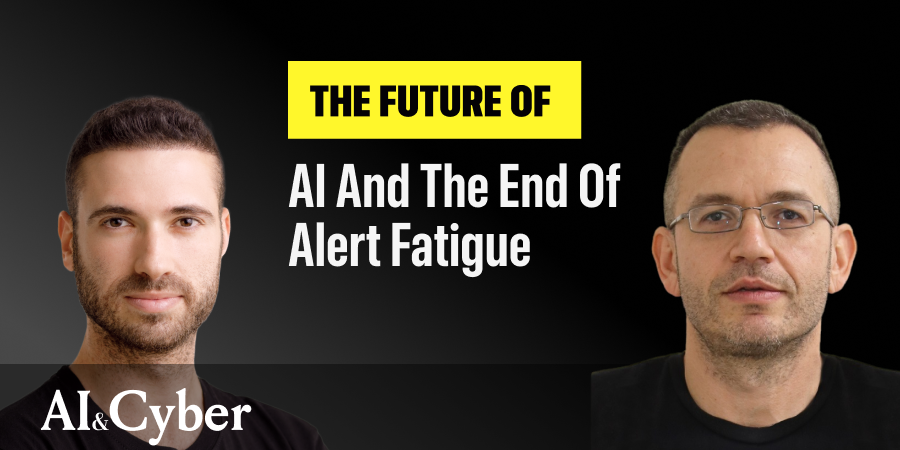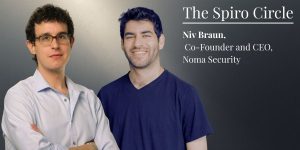For decades, cybersecurity vendors have armed defenders with dashboards filled with red alerts. But they rarely delivered solutions. As Tsion (TJ) Gonen put it in our recent conversation: “97% of tools just showed you a red screen that said, basically, ‘you suck.’” No remediation. No action. Just fatigue.
That paradigm is ending—and AI is the catalyst.
Gonen, a veteran cybersecurity leader and founder of Protego Labs (acquired by Check Point), has spent three decades watching the industry wrestle with inefficiency. Today, he sees a profound shift. “Security teams don’t want more tools,” he told me. “They want outcomes. They want closed loops.”
This point echoes what Dorit Dor, CTO of Check Point, told me: AI isn’t just another layer of detection. It must act—autonomously and in real-time. At Clarity, we see this daily as we intercept deepfakes and AI-generated phishing attacks that move too fast for human intervention.
But before the shift to AI, Gonen argues, the security industry was already in trouble. Too much noise. Not enough signal. “Cybersecurity reached a tipping point even before AI,” he said. “People began to question if the whole model was working.”
AI, he believes, doesn’t just enhance existing tools—it reshapes the game. From reducing product development costs to enabling automated response, AI democratizes defense the same way it democratized attack. “The ability to close loops automatically is what makes AI transformational,” he said.
It’s a point that also came up in my conversation with Shahar Peled of Terra Security. Shahar talked about replacing manual pentesting with agentic AI. Gonen’s vision is broader: don’t just find issues—resolve them, immediately and autonomously.
Yet many founders, he warns, still fall into the same trap: mistaking incremental tech improvements for true breakthroughs. “Real differentiation isn’t just in the tech,” Gonen said. “It’s in how well you integrate into operational workflows.”
This distinction—between technology and execution—reminds me of what Tsion (TJ) shares with leaders like Tom Mes: the CISO’s job has become impossibly complex. What they need now isn’t another blinking dashboard. It’s simplicity. Precision. And trust.
Looking ahead, Gonen doesn’t expect a flood of brand-new threat categories. Instead, he sees opportunity in rethinking how we solve familiar ones. “You don’t have to invent new problems to build great companies,” he said. “You just have to solve the old ones better—with AI.”
The future, he believes, belongs to startups that deliver true operational integration and seamless user experience—not flashy tech for its own sake. His call to entrepreneurs: don’t bolt AI onto your platform. Build with it from day one.
My biggest takeaway? The next generation of cybersecurity leaders won’t be judged by how many alerts they generate. They’ll be judged by how many threats they prevent—automatically.
We’ve reached a breaking point. Organizations that embrace AI as a core strategy—not just a feature—will define the next era of cybersecurity.
Michael Matias is the CEO and Co-Founder of Clarity, an AI-powered cybersecurity startup backed by venture capital firms including Bessemer Venture Partners and Walden Catalyst. Clarity develops advanced AI technologies protecting organizations from sophisticated phishing attacks and AI-generated social engineering threats, including deepfakes. Before founding Clarity, Matias studied Computer Science with a specialization in AI at Stanford University and led cybersecurity teams in Unit 8200 of the Israel Defense Forces. Forbes Israel recognized him early on, naming him to the exclusive 18Under18 list in 2013 and the Forbes 30Under30 list thereafter. Matias authored the book Age is Only an Int and hosts the podcast 20MinuteLeaders.





